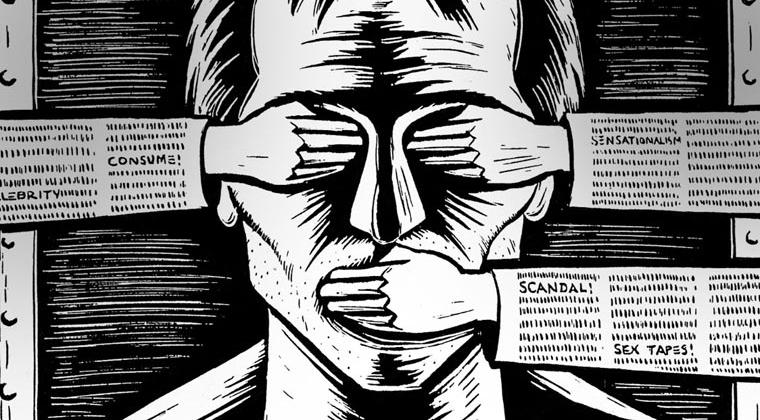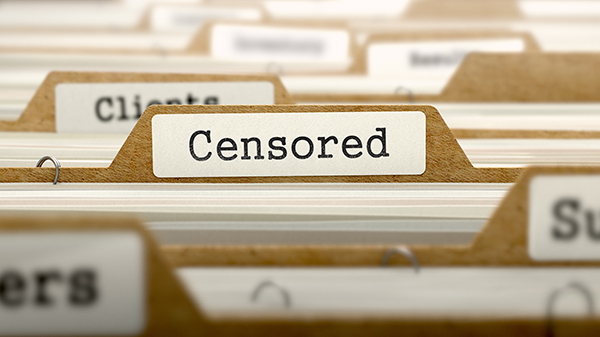Censorship: Google to start flagging “offensive” content as another form of censorship
03/18/2017 / By Jayson Veley

One of the most dangerous words in America today is the word “offensive,” not because it’s used to describe something that hurts one’s feelings, but because of how it is used by the progressive Left. It goes without saying that the word “offensive” is a subjective term that can mean many different things to many different people; what Sally finds offensive may not be offensive to Joe, and vice versa. Because of the term’s lack of definition, it is up to us to give it definition. This is dangerous because it invites people to use the word in a way that best suits their own biases or agendas. Such is the case with the Democratic Party, which has essentially hijacked the word “offensive,” and now uses it to mean anything that comes out of the mouth of a conservative.
Americans should be very weary whenever they see a company or an organization announce plans to combat offensive language. Entities, just like individuals, have their own political agendas, and often justify silencing the opposition by claiming to be combating “offensive speech.”
Google is the latest corporation to join the fight against “offensive” speech on the Internet. Recently, the multibillion-dollar company directed its review teams to locate and flag language that could potentially be upsetting or offensive. By doing this, Google hopes to improve the overall quality of search results. (RELATED: Read about how Google took action to censor Natural News).
If a member of the Google review team decides that one of the search results contains racial slurs, or that it promotes hate or violence in some way, then the content will be flagged under a new “upsetting-offensive” category.
While the flagging system doesn’t delete search results completely, it does make it so that “offensive” results are buried and made more difficult to find, whereas search results that are considered to be high quality are more easily accessible. For example, an article about the role the religion of Islam plays in terror attacks may be pushed down and made more difficult to find, while an article about celebrating diversity would be a “quality” search result and found more easily. This, of course, is an extreme example, but you get the point.
The review teams that are responsible for judging the quality of the search results are called “quality raters.” These people examine different websites and other content to look for things that are offensive or upsetting, such as pornography. The new feature that Google has added gives these quality raters the ability to list the “offensive content” under the new “upsetting-offensive” category. Thus far, Google has declined to comment on these changes.
The “upsetting-offensive” flag reportedly instructs reviewers to “flag to all web results that contain upsetting or offensive content from the perspective of users in your locale, even if the result satisfies the user intent.” In other words, even if the results satisfy what the user was searching for, such as white supremacist websites or anti-Semitic articles, they could still potentially get flagged, even though it still wouldn’t delete the search result entirely.
While an excess of propaganda and misinformation circulating the web is not something that should be encouraged, any company that seeks to regulate speech should instantly raise the red flag for supporters of the First Amendment. While it appears that right now Google is only seeking to limit the amount of extreme content out there, such as pornography and white supremacist sites, this new initiative could easily begin infringing on the free speech rights of American citizens, even if it’s speech that is not offensive or upsetting. Despite good intentions, Google may very well have started down a slippery slope.
If you are uncomfortable or weary about what Google is doing, sign our petition to let them know that their actions are in violation of the First Amendment’s freedom of speech.
Sources:
Submit a correction >>
Tagged Under:
First Amendment, free speech, Google, Offensive Speech, priority
This article may contain statements that reflect the opinion of the author
RECENT NEWS & ARTICLES
COPYRIGHT © 2017 GLITCH.NEWS
All content posted on this site is protected under Free Speech. Glitch.news is not responsible for content written by contributing authors. The information on this site is provided for educational and entertainment purposes only. It is not intended as a substitute for professional advice of any kind. Glitch.news assumes no responsibility for the use or misuse of this material. All trademarks, registered trademarks and service marks mentioned on this site are the property of their respective owners.




















